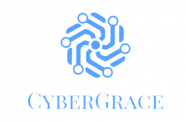Many veterans find themselves in limbo after serving in the military. On the one hand, they look forward to a new chapter in their lives —a new career and environment. On the other, their career opportunities tend to be limited, not to mention their trauma holds them back from trying out new things.
No wonder many veterans struggle financially. But thankfully, the option to start a business is there if they can’t find work. The Small Business Administration (SBA) offers funding programs for veterans who want to venture into entrepreneurship. The Office of Veterans Business Development oversees these programs. And they’re not just available for veterans but also for service-disabled veterans, reservists, active-duty service members, transitioning service members, and survivors or dependents of fallen veterans.
Technology increased the businesses opportunities for veterans, allowing them to obtain funding easier. And some known veteran-owned businesses are in tech themselves. SERP.co, a popular digital marketing agency, is owned by former Coast Guard Sage Maguk. Joust, a banking platform for freelancers and the self-employed, was founded by former Marine Lamine Zarrad.
As technology continues to evolve, veterans will not be left behind. Here’s how technology improves their opportunities and lifestyles:
Veterans Can Get Free Tech Training
Traditionally, tech jobs required sophisticated technical degrees, something many veterans didn’t have. As such, they used to be unfit for tech occupations. But a growing number of companies are starting to recognize the value of military training. They’re now including veterans and veteran spouses in their shortlists.
It’s also suitable for those companies because a study has found that veterans and veteran spouses are among the best candidates for STEM jobs.
To be fit for a tech job or business, veterans or spouses can get training for free. These free training programs are offered by nonprofit organizations, such as Apprenti, NPower, and the Department of Veteran Affairs (VA).
Apprenti offers fully-paid apprenticeship positions. They place the people they train into top-tier companies, including Amazon, Microsoft, and JP Morgan Chase & Co. After completing their apprenticeship, the veterans or spouses will partake in an interview for a full-time position with their host company. Though 50% of Apprenti’s trainees didn’t have a college degree, 85% of them got hired by their host company.

NPower is specifically focused on tech, unlike Apprenti, which is more diverse in its fields. In NPower, veterans or spouses are subject to a 15-week IT program that includes classroom learning and a seven-week paid internship. Senior-level IT professionals also mentor them.
Lastly, the VA’s training program is called Veteran Employment Through Technology Education Courses (VET TEC). Veterans can choose which area of study they’d like to be trained in, including information science, computer programming, computer software, and the like. After completing their course, a training provider will assist them in building their resume and looking for their dream job.
Even if these training programs are focused on finding employment, they still create entrepreneurship opportunities. The average wage for STEM occupations is $87,570, nearly double the average salary of non-STEM jobs. Hence, a veteran can have a higher likelihood of earning capital than another employee.
Technology Expanded Veterans’ Horizons
As we’ve seen above, many companies realized the potential of veterans in STEM jobs. They allowed veterans in tech to grow the career opportunities for their fellows. Now, veterans-turned-entrepreneurs are doing the same.
To enable more veterans to get into tech, the VA is pushing Congress to lift the funding cap on a particular pilot program that offers tech training for transitioning veterans. According to Ronald Burke, deputy undersecretary for policy at the Veterans Benefits Administration, this will result in better employment.
Meanwhile, the veterans who have already succeeded in their own businesses are inspiring their fellow veterans to take their path, too. And they don’t even need to go into the tech industry because the internet alone can already reap tech benefits for them. For example, Puppy Mama, owned by Former Army Captain Theresa Piasta, raised awareness about canine therapy, thanks to the internet spreading information fast.
Another successful business, Birdie Boutique, benefited from the internet as well. The e-commerce shop is run by Barbara Jozwik Kent, an army veteran with an active-duty spouse.
Veterans who’d like to start a business can get a short course on entrepreneurship or expert advice from business consultants. They can also get certified as a service-disabled veteran-owned small business (SDVOSB) or partake in a Disabled Veteran Business Enterprise (DVBE) program.
Final Thoughts
When industries become more open to veterans, everyone who has served in the military will no longer find themselves in limbo after their service. They can transition to their new careers easily and land themselves a fulfilling career that can also serve their country in a way.
